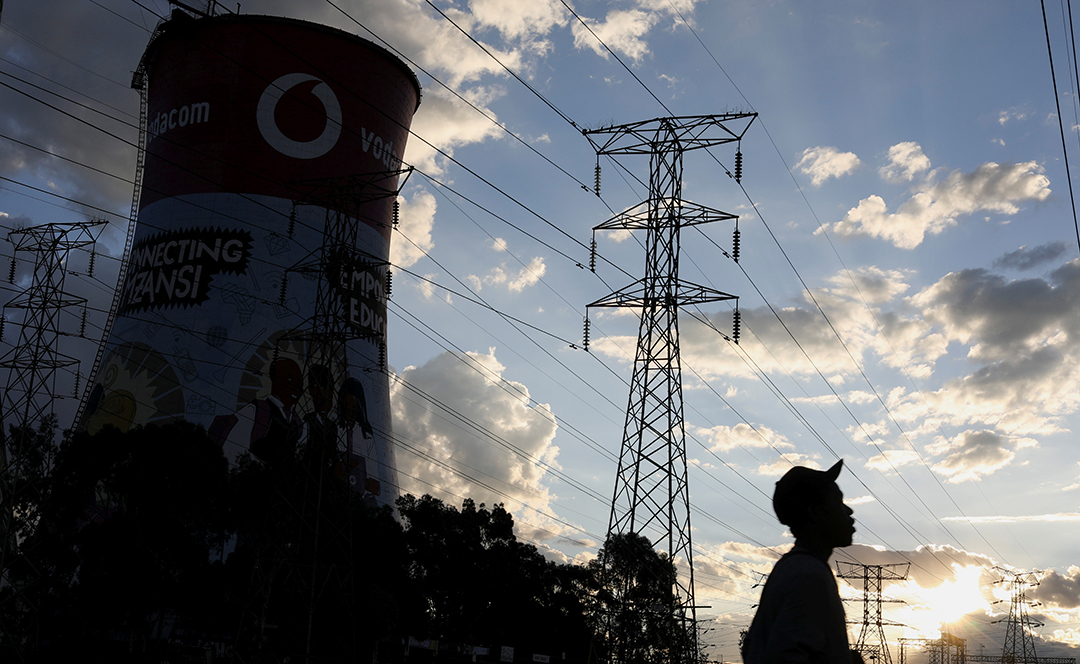ADF STAFF
Africa’s demand for electricity is more acute than ever, as hospitals and clinics struggle to keep COVID-19 vaccines frozen and respirators running.
Nearly 60% of Sub-Saharan Africa’s health care facilities lack electricity. Of those with electricity, only 34% of hospitals and 28% of health clinics have reliable power throughout the day, according to a 2019 World Bank report.
Due to a lack of electricity, diesel generators often are a health care facility’s main source of power, Tony Carr, CEO of Nigeria-based solar company Starsight Energy, told Forbes magazine.
“Further, where reliable grid conditions do exist, the costs for electricity can be rather high in some countries,” Carr said. “Africa’s phenomenal size means that large areas of the continent have no grid at all.”
The number of people on the continent with access to electricity had been increasing since 2013, but the COVID-19 pandemic reversed that trend, Forbes reported. More than 590 million Africans lacked electricity in 2020, an increase of 13 million people compared to 2019, according to World Energy Outlook.
COVID-19 has forced governments to focus on containment measures, resulting in a lack of funding for expanding and improving electricity infrastructure.
In Uganda, officials have paused public subsidies for an electricity access program, while South African authorities have redirected funds to health and welfare programs and facilities at the expense of expanding rural electrification, the International Energy Agency reported.
However, about 1,200 megawatts of off-grid solar power are expected to come online this year in Sub-Saharan Africa, excluding South Africa, according to Forbes. That could offer countries a cost-effective, reliable way for hospitals and other medical facilities to keep running while allowing them to safely store COVID-19 vaccines that must be kept frozen.
Starsight Energy may offer a business model for others to follow. It removes the costs of solar panels, battery storage and cooling equipment so that its commercial and industrial customers pay no upfront costs. Instead, Starsight conducts energy audits for its clients and bases its service on energy demand. Customers pay a monthly fee for monitoring, maintenance and support.
During the pandemic, artisanal fishermen in Côte d’Ivoire and Senegal have used solar-powered cold blockchain units to keep their catches fresh. Solar energy company PEG Africa is piloting the program through funding from Power Africa, a network of private and public groups set up by the U.S. Agency for International Development, Reuters reported.
The program also has started providing solar-powered systems to upgrade health centers. Thierry Adonis, CEO of PEG Africa for Côte d’Ivoire, said cold-chain technology is particularly important for vaccine storage.
“If the relevant departments and the health ministries don’t follow this cold-chain logic, then clearly people living in the more remote areas will not have access to the vaccine,” Adonis told Reuters.
In late April, the United States announced plans to collaborate on a major solar project in Botswana and Namibia.
The Mega Solar project could bring renewable solar power to hundreds of thousands of homes and businesses in Botswana over the next 20 years. Officials say the project could transform Botswana into a significant producer and exporter of solar power.


Comments are closed.